第79章 Chapter 10 Modern Survivals of Prowess(4)
It is perhaps truer, or at least more evident, as regards sports than as regards the other expressions of predatory emulation already spoken of, that the temperament which inclines men to them is essentially a boyish temperament. The addiction to sports, therefore, in a peculiar degree marks an arrested development of the man's moral nature. This peculiar boyishness of temperament in sporting men immediately becomes apparent when attention is directed to the large element of make-believe that is present in all sporting activity. Sports share this character of make-believe with the games and exploits to which children, especially boys, are habitually inclined. Make-believe does not enter in the same proportion into all sports, but it is present in a very appreciable degree in all. It is apparently present in a larger measure in sportsmanship proper and in athletic contests than in set games of skill of a more sedentary character; although this rule may not be found to apply with any great uniformity. It is noticeable, for instance, that even very mild-mannered and matter-of-fact men who go out shooting are apt to carry an excess of arms and accoutrements in order to impress upon their own imagination the seriousness of their undertaking.
These huntsmen are also prone to a histrionic, prancing gait and to an elaborate exaggeration of the motions, whether of stealth or of onslaught, involved in their deeds of exploit. Similarly in athletic sports there is almost invariably present a good share of rant and swagger and ostensible mystification -- features which mark the histrionic nature of these employments. In all this, of course, the reminder of boyish make-believe is plain enough. The slang of athletics, by the way, is in great part made up of extremely sanguinary locutions borrowed from the terminology of warfare. Except where it is adopted as a necessary means of secret communication, the use of a special slang in any employment is probably to be accepted as evidence that the occupation in question is substantially make-believe.
A further feature in which sports differ from the duel and similar disturbances of the peace is the peculiarity that they admit of other motives being assigned for them besides the impulses of exploit and ferocity. There is probably little if any other motive present in any given case, but the fact that other reasons for indulging in sports are frequently assigned goes to say that other grounds are sometimes present in a subsidiary way.
Sportsmen -- hunters and anglers -- are more or less in the habit of assigning a love of nature, the need of recreation, and the like, as the incentives to their favorite pastime. These motives are no doubt frequently present and make up a part of the attractiveness of the sportsman's life; but these can not be the chief incentives. These ostensible needs could be more readily and fully satisfied without the accompaniment of a systematic effort to take the life of those creatures that make up an essential feature of that "nature" that is beloved by the sportsman. It is, indeed, the most noticeable effect of the sportsman's activity to keep nature in a state of chronic desolation by killing off all living thing whose destruction he can compass.
Still, there is ground for the sportsman's claim that under the existing conventionalities his need of recreation and of contact with nature can best be satisfied by the course which he takes. Certain canons of good breeding have been imposed by the prescriptive example of a predatory leisure class in the past and have been somewhat painstakingly conserved by the usage of the latter-day representatives of that class; and these canons will not permit him, without blame, to seek contact with nature on other terms. From being an honorable employment handed down from the predatory culture as the highest form of everyday leisure, sports have come to be the only form of outdoor activity that has the full sanction of decorum. Among the proximate incentives to shooting and angling, then, may be the need of recreation and outdoor life. The remoter cause which imposes the necessity of seeking these objects under the cover of systematic slaughter is a prescription that can not be violated except at the risk of disrepute and consequent lesion to one's self-respect.
The case of other kinds of sport is somewhat similar. Of these, athletic games are the best example. Prescriptive usage with respect to what forms of activity, exercise, and recreation are permissible under the code of reputable living is of course present here also. Those who are addicted to athletic sports, or who admire them, set up the claim that these afford the best available means of recreation and of "physical culture." And prescriptive usage gives countenance to the claim. The canons of reputable living exclude from the scheme of life of the leisure class all activity that can not be classed as conspicuous leisure. And consequently they tend by prescription to exclude it also from the scheme of life of the community generally. At the same time purposeless physical exertion is tedious and distasteful beyond tolerance. As has been noticed in another connection, recourse is in such a case had to some form of activity which shall at least afford a colorable pretense of purpose, even if the object assigned be only a make-believe.